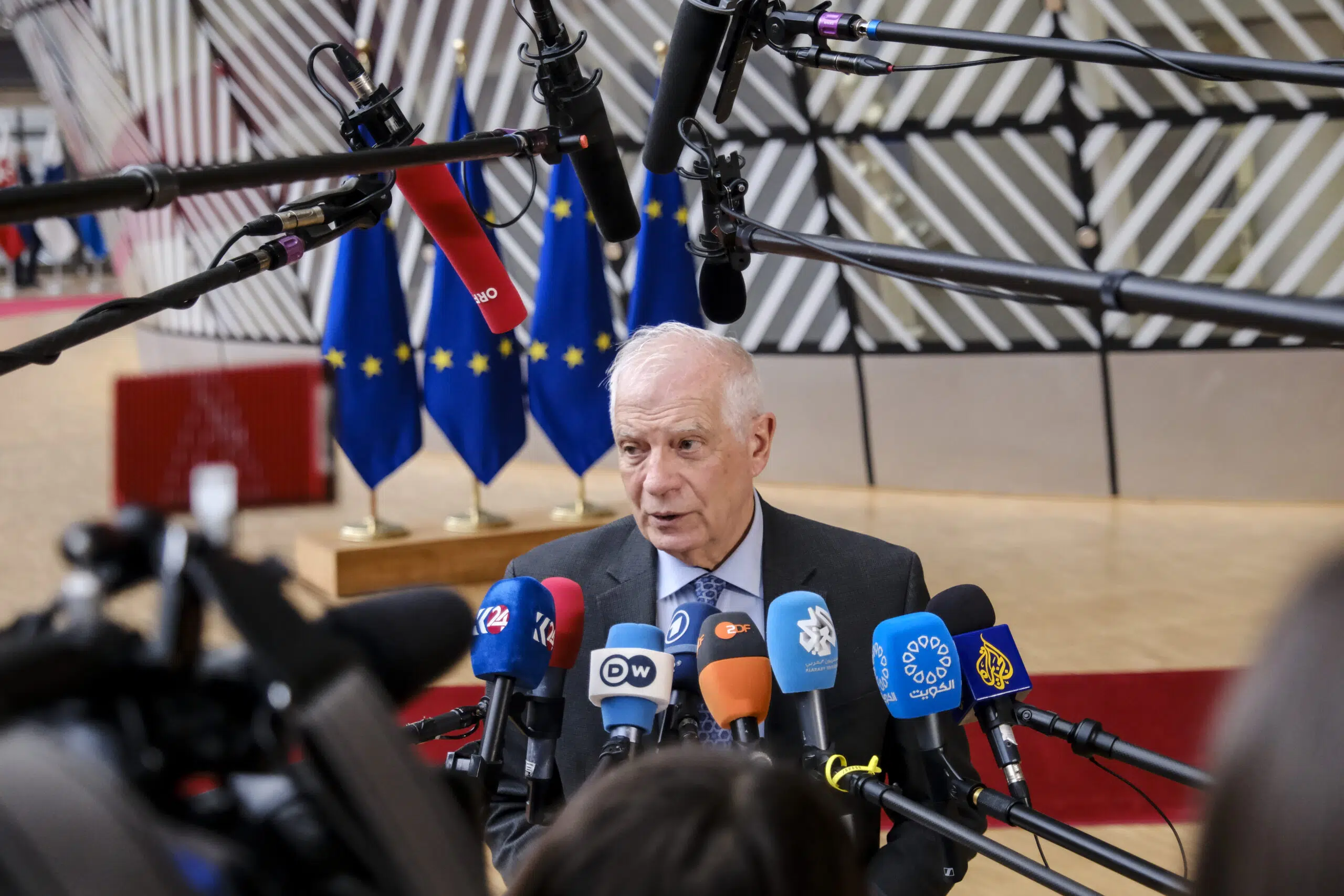Brussels – According to the latest evaluation of the Integrated Food Security Phase Classification (IPC), the entire population of the Gaza Strip is experiencing severe food insecurity. In the northern Palestinian enclave, 70 per cent of those who remained are already facing famine. And in the central and southern governorates, half the population suffers catastrophic food insecurity. In light of the report, the EU High Representative for Foreign Affairs, Josep Borrell, relaunched the accusation to Israel: “It uses hunger as a weapon of war.”
A scathing accusation: voluntarily starving a population is a war crime and falls within the deliberate actions that constitute an act of genocide. This time, alongside Borrell, who had already made the accusation before the UN Security Council, is also the EU Commissioner for Crisis Management, Janez Lenarčič. The two issued a joint statement in which, commenting on the IPC experts’ analysis, they reiterated that “hunger cannot be used as a weapon of war” and that “what we are witnessing is not a natural hazard, but a man-made disaster, and it is our moral duty to stop it.”

Meanwhile, the Foreign Ministers of the 27 countries are meeting in Brussels, and the humanitarian crisis in Gaza is on the agenda. Borrell, arriving at the Council, reiterated the point: “There are foodstuffs stockpiled for months, waiting to enter Gaza, while on the other side of the border, people are starving. For the head of the European diplomacy, “before the war, Gaza was a big open-air prison, today it is a big open-air graveyard, also in terms of what concerns compliance with international rules.”
What is chilling is not only the current situation photographed by IPC, in which 2.2 million people face “high levels of food insecurity,” but the forecasts for the coming months: “From mid-March to mid-July, in the most likely scenario and assuming an escalation of the conflict that includes a ground offensive in Rafah, half of the population will face the risk of famine.” On a scale of 1 to 5 used by IPC, famine represents the most severe level of acute food insecurity.

[Source: Integrated Food Security Phase Classification]
“This is an unprecedented situation. No IPC analysis has ever recorded such levels of food insecurity anywhere in the world,” Borrell and Lenarčič pointed out. In the Strip, 50 per cent of buildings have been damaged or destroyed: houses, stores, hospitals, and schools, as well as water and sanitation facilities and the infrastructure needed for food production and distribution, significantly limiting the functionality of the food system. The IPC report also lists figures for overland aid entries: “From a pre-escalation average of 500 trucks per day, including 150 carrying food, in the period between October 7, 2023, and February 24, 2024, only 90 trucks per day, of which only 60 carrying food, entered the Gaza Strip.”
After five and a half months of conflict, Israel has still not opened all the gates to humanitarian convoys; indeed, less and less aid is coming in. Tel Aviv’s responsibilities are there for all to see: even German Chancellor Olaf Scholz, one of the most cautious about denouncing Israel’s violations of international law, stressed to Israeli Prime Minister Netanyahu that “we cannot stand by and watch Palestinians starve,” pointing out the situation “is entirely man-made” and stems from “those who prevent humanitarian support from entering Gaza.”
Tajani: “Position not agreed upon.” Israel denies allegations
However, the accusation made by the head of the European diplomacy is not shared by everyone in Brussels. Starting with Italy’s deputy prime minister and foreign minister, Antonio Tajani, who commented, “It’s Borrell’s position; he didn’t agree it with anyone.” In Tel Aviv, on the other hand, they didn’t take it very well: Borrell “stop attacking Israel and recognize our right to self-defence against Hamas’s crimes,” the Foreign Minister, Israel Katz, responded in a post on X.

In a document that Israeli authorities have submitted to the International Court of Justice regarding the procedure brought by South Africa over possible genocide in Gaza, Israel adamantly denies that it is obstructing the arrival of basic necessities for the Palestinian population. Food insecurity in Gaza “is a serious challenge” but “is not a simple issue,” Tel Aviv’s lawyers argue, reaffirming that “Israel has committed, together with a range of stakeholders, to ongoing and extensive efforts to address this challenge.” A commitment that would demonstrate “the exact opposite of genocidal intent or an attempt to starve the population.”
On the contrary, Israel would be working for the “continued facilitation of the entry of humanitarian aid shipments into Gaza and the use of additional routes for this purpose and strengthening the capacity of existing ones.” Israeli authorities point the finger at the “despicable strategy of Hamas,” which “assumes control of humanitarian supplies” and “diverts them from their civilian destination.”
English version by the Translation Service of Withub






![La presidente della Commissione europea, Ursula von der Leyen, alla EU Budget Conference 2025 [Bruxelles, 20 maggio 2025]](https://www.eunews.it/wp-content/uploads/2025/05/vdl-bilancio-120x86.png)